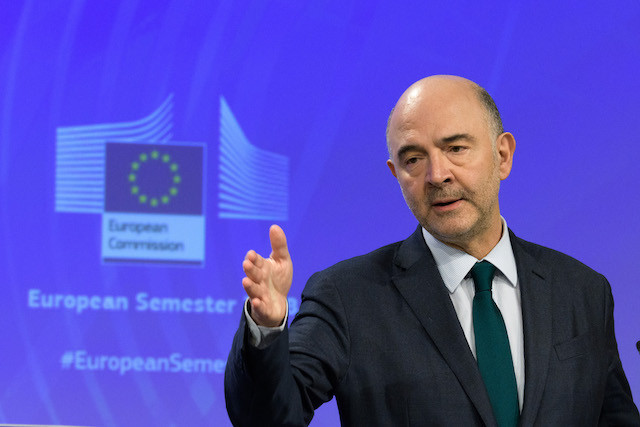“The @EU_Commission is today stressing the issue of aggressive tax planning in seven EU countries: #Belgium, #Cyprus, #Hungary, #Ireland, #Luxembourg, #Malta and The #Netherlands. #FairTaxation,” Pierre Moscovici, the European finance commissioner, said on Twitter on 7 March.
“These practices have the potential to undermine fairness and the level playing field in our internal market, and they increase the burden on EU taxpayers. The related country reports presented today are based on a thorough review of their tax rules & relevant economic indicators,” he wrote in a subsequent tweet.
Moscovici, France’s EU commissioner, was referring to European Commission’s “annual analysis of the economic and social situation in 27 member states” (all EU countries except Greece), published on Wednesday.
The “2018 European Semester: Country Report – Luxembourg” report said:
“Some indicators suggest that Luxembourg’s tax rules may be used in aggressive tax planning structures. Luxembourg has taken steps to amend certain aspects of its tax system that may facilitate aggressive tax planning and is engaged in international tax reform. However, the absence of withholding taxes on royalties and interest payments made by companies based in Luxembourg, or the lack of some anti-abuse rules, suggest that the country’s tax rules may still be used in tax avoidance structures.”
“We of course recognise the steps some of these Member States have taken to adapt their tax model recently. I am meeting ministers from these countries on a regular basis to discuss their national measures and take stock on progress. But, clearly more needs to be done,” Moscovici tweeted on 7 March.
Earlier this year, Moscovici called the tax systems in Luxembourg and three other EU countries “black holes”.
Luxembourg’s government has previously said that its tax policies have always followed EU norms. Pierre Gramegna, the DP finance minister, has repeatedly called for a “level playing field” internationally. “We need more transparency, and everyone has to play along,” the Financial Times quoted him as saying in June 2017. “Now the European Union is doing that and we are expecting others to follow.”
In addition to EU measures, the grand duchy has signed on to the OECD’s “Beps” initiative to harmonise global company taxation.
